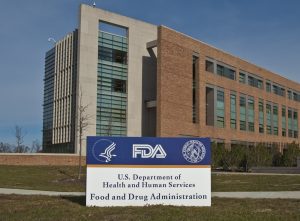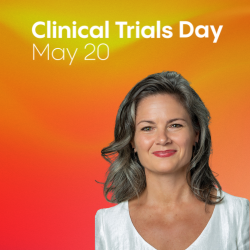A new U.S. Food and Drug Administration (FDA) guidance seeks to help clinical trial practitioners ensure the safety of patients while maintaining compliance with good clinical practice (GCP) and otherwise “minimizing risks to trial integrity during the COVID-19 pandemic.”
The agency recognizes this is terra incognito. “Challenges may arise, for example, from quarantines, site closures, travel limitations, interruptions to the supply chain for the investigational product, or other considerations if site personnel or trial subjects become infected with COVID-19,” the agency says in the March 18 guidance.
“Sponsors should consider each circumstance, focusing on the potential impact on the safety of trial participants, and modify study conduct accordingly,” the agency says. Study decisions may include those regarding continuing trial recruitment, continuing use of the investigational product for patients already participating in the trial, and the need to change patient monitoring during the trial. In all cases, it is critical that trial participants are kept informed of changes to the study and monitoring plans that could impact them, FDA says.
Sponsors, in consultation with clinical investigators and institutional review boards (IRBs)/independent ethics committees (IECs), may determine that the protection of a participant’s safety, welfare, and rights is best served by continuing a study participant in the trial as per the protocol or by discontinuing the administration or use of the investigational product or even participation in the trial. “Such decisions will depend on specific circumstances, including the nature of the investigational product, the ability to conduct appropriate safety monitoring, the potential impact on the investigational product supply chain, and the nature of the disease under study in the trial,” FDA says.
Since trial participants may not be able to come to the investigational site for protocol-specified visits, sponsors should evaluate whether alternative methods for safety assessments (e.g., phone contact, virtual visit, or alternative location for assessment, including local labs or imaging centers) could be implemented when necessary and feasible, and would be sufficient to assure the safety of trial participants.
FDA also says sponsors should determine if in-person visits are necessary to fully assure the safety of trial participants (for example, to carry out procedures necessary to assess safety or the safe use of the investigational product appropriately); in making the decision to continue use or administration of the investigational product, the sponsor should consider whether the safety of trial participants can be assured with the implementation of the altered monitoring approach.
In some cases, trial participants who no longer have access to the investigational product or the investigational site may need additional safety monitoring (e.g., withdrawal of an active investigational treatment).
The guidance also addresses some virus-specific situations. “COVID-19 screening procedures that may be mandated by the healthcare system in which a clinical trial is being conducted do not need to be reported as an amendment to the protocol even if done during clinical study visits unless the sponsor is incorporating the data collected as part of a new research objective,” FDA says.
The implementation of alternative processes should be consistent with the protocol to the extent possible, and sponsors and clinical investigators should document the reason for any contingency measures implemented. “Sponsors and clinical investigators should document how restrictions related to COVID-19 led to the changes in study conduct and duration of those changes and indicate which trial participants were impacted and how those trial participants were impacted,” FDA says.
The guidance also notes that changes in study visit schedules, missed visits, or patient discontinuations may lead to missing information (e.g., for protocol-specified procedures). “It will be important to capture specific information in the case report form that explains the basis of the missing data, including the relationship to COVID-19 for missing protocol-specified information (e.g., from missed study visits or study discontinuations due to COVID-19).”
Meanwhile, thought leaders continue to share their experiences in the field during these unprecedented times.
“For now, the flow of patient visits and data management activities is continuing as planned,” says Jerry Stein, PhD, ACRP-CP, ACRP-MDP, president/owner of Summer Creek Consulting, LLC in Fort Worth, Texas. However, Stein is “expecting a significant decrease in patient visits to occur as waiting rooms become empty. The sponsor may keep the study open or terminate early. It all depends on the number of missed visits and the enrollment curve. I plan to communicate with the sponsor frequently with a high degree of professionalism.”
“Our first objective will continue to be the safety of our research patients and teams,” says Laura Menck, CCRA, ACRP-PM, a clinical project manager in the U.S. for the Amsterdam-based health technology firm Philips. “This will also be a time when the entire research community will need to be compassionate and understanding of the regional and institutional challenges everyone is facing. Agility will be key. One of my personal goals is not overburdening my sites and field teams to the extent possible and [to] delay non-urgent objectives. I feel confident and proud that our industry will be at the forefront of solutions for health crises like this in the future.”
Author: Michael Causey



